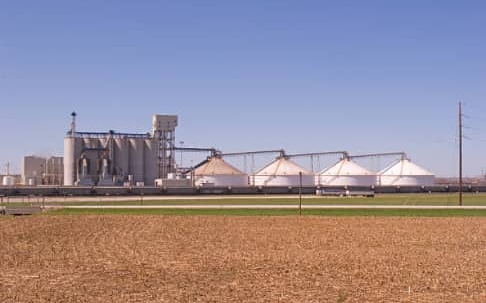
By Guest Writer
Opinion: Undoubtedly, Uganda’s agribusiness sector will only transition for the better with heavy investment in agro-industrialization.
The current scattered support offered to individual farmers or clusters of farmers across the country seems to leave the main bottlenecks along multiple strategic value chains intact.
The single biggest challenge to farmers today seems to be in produce handling (drying and storage) and processing (turning produce into a product) with a fair shelf life.
Agro-industrialization and agro-processing would play a pivotal role in helping to confront the challenges of produce handling and processing and must take the lion’s share of the agriculture budget.
Investment in agro-processing would spur a lot of improvement in the functionality of various value chains as processors would invest in and enforce the better crop production practices, quantity, quality, and delivery mechanisms required by end buyers.
For every crop grown and produced for commercial purchases in a district or a cluster of districts, there is a need to have 2 to 3 industrial-scale processors to provide the market pull, produce handling, and processing.
Given the current state of cooperatives in the country, most of them are unable to effectively organize farmers, plan production, increase productivity, and organize collective storage, processing, and marketing.
There is a need to support agro-processors to provide services that would otherwise have been provided by cooperatives; averagely performing cooperatives with minimal agro-processing technology and capacity provide a good entry point as we try to degenerate the economy.
Processors should have a direct linkage to farmers, plan production and storage, and agree on product quantity, quality, and pricing in a contract farming arrangement.
In the end, the work of the farmer should be to engage in crop production; thereafter, wait to receive their pay check. Beyond production, product handling and processing must fall in the hands of another more organized and competent sector player with the technology that can process and deliver a quality product on the market. The thinking and the culture today are that the farmer can confront all these challenges alone.
Ideally, the farmer would hand over the produce to his area’s maize, pineapple, coffee, soybean, cassava, sugarcane, tomatoes, and honey cooperative for onward processing, marketing, distribution to the area markets and supermarkets, or export to international markets.
But the area cooperatives and farmer associations are nearly dysfunctional, incapable, and underresourced to conduct large-scale operations. This begs the question: who or what shall save the farmer?!
Do you see how the dairy value chain is organized and operates in the Ankole sub-region?!
The work of the dairy farmer is to produce milk and immediately hand over the milk to his or her area cooperative’s cooling plant. This area cooperative is linked to large milk buyers and processors in urban centers. What happens to the milk thereafter is not the work of the dairy farmer but of the area cooperative. The farmer waits for their pay check at the end of the month from their area dairy cooperative.
In a 2014 visit to the Netherlands, as part of a fellowship on organizing farmers as partners in agribusiness and optimizing the performance of producer organizations, I saw the same dairy farming business model in the Netherlands.
Dairy farmers there were or are organized under a Diary Farmers Cooperative. Dairy farmers there have large milk cooling plants at their farms able to cool and store fresh milk for 2–3 days.
The cooperative does farmer capacity building, linkages, and negotiations on behalf of farmers. The cooperative is linked to a large-scale buyer and processor called #FrieslandCampina. The farmer only waits for their check at the end of the month from the diary. cooperative
The above is an excellent model that needs to be replicated across all strategic crop value chains across the country. This would spur a lot of job creation and hasten industrialization in the country.
The author is Moses Kadogoli, a concerned citizen.
Disclaimer: As UG Reports Media LTD, we welcome any opinion from anyone if it’s constructive for the development of Uganda. All the expressions and opinions in this write-up are not those of UG Reports Media Ltd. but of the author of the article.
Would you like to share your opinion with us? Please send it to this email: theugreports@gmail.com.






